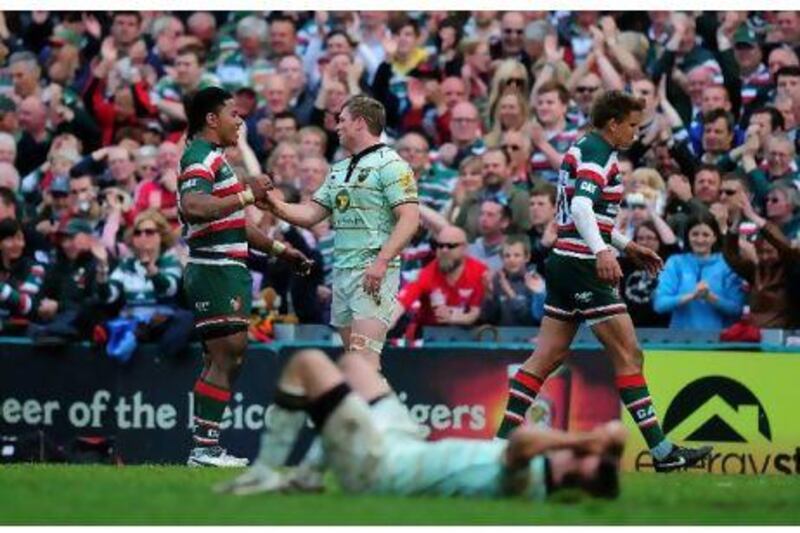When the Sunday Times published its "sporting rich" list last week, the top places were, not surprisingly, filled by footballers, race car drivers and golfers.
Within the sporting gentry, just one rugby player featured, and he packed up playing a long time before earning money from the game was permitted.
Tony O'Reilly, the former Ireland, Lions and Barbarians wing, made his money from business, most notably with the Heinz food company. He was a captain of industry rather than a sports team.
Rugby has a strange relationship with wealth. Gareth Edwards, the Wales scrum-half of the 1970s who was arguably the sport's greatest player, was temporarily barred from having any involvement in rugby when he published an autobiography. Because sales from it meant he made money from the game, he was deemed a professional and banned.
It was only relatively recently that the muddied oafs first became monied oafs, at all, and the sport is still struggling to work out how to best manage its finances since it officially went open in the mid-1990s.
Now that all the Gentlemen are Players, they are craving the type of rewards due to people whose professional life-span will not last much more than a decade.
Upon retirement - which given the toll the sport takes on their bodies, now comes around the early-30s rather than mid-30s - players go directly from the prime of life to the job-seekers queue.
A free market more or less prevails now, meaning leading players can earn handsome rewards from the game, especially in Japan and France.
However, curbs are imposed to limit spending in certain countries, most notably in England, where a salary cap is restrictive, but clearly necessary. Even with it in place, only two clubs in the 12-team Premiership are without debt.
The economics of the game are not going to allow it any time soon, if ever. But if the protagonists were paid their wages commensurate to the values their sport represents, combined with the impact it takes on their bodies, rugby players would flood the top end of the rich list.
Take last weekend, for example, when two of English rugby's most ancient rugby rivals, Leicester and Northampton, played their version of el clasico.
With a place in the Premiership final at stake, tension was high and it got the better of Manu Tuilagi.
The mountainous young blood has been part of Leicester's system for so long, he will represent England rather than Samoa - for whom five of his brothers have played - a choice that is perhaps also driven by the greater financial deal it will earn him.
Riled by Chris Ashton, he rained a combination of punches on his opponent, the third a king-hit which, given the evidence of super-slow-mo and HD, nearly removed Ashton's face from his skull. Thankfully, Ashton ended up with nothing more severe than a cut above his left eye for his pains.
So far, so bad for rugby - but foul play and indiscipline are hardly the sole preserve of that sport. It is the way the players responded to it for which rugby should be lauded.
Ashton's injuries were compounded by the fact he was yellow-carded in the incident for essentially doing nothing. Yet he did not complain once, or even show an outward sign of dissent.
Then at the end, the two players hugged, like they were old friends.
"Once the final whistle went, that's it," Ashton said. "It stays on the field. I shook his hand. It's part of rugby."
Imagine if it had been a football match at the Bernabeu. First of all, the heavyweight king-hits would have been, at worst, flailing slaps. The sinned-against player would have been rolling around on the floor before the shadow of the offending blow had even come near to him, only uncovering his anguished face to look to make sure the referee has brandished a card.
No doubt there would then be a wink to the management for a job well done, and a miraculous recovery, followed by two weeks of, "He called me this," and "Well, he called me that," tit-for-tat on the airwaves.
Rugby players call referees "Sir". Footballers shout swear words directly into television cameras.
And to think, at the end of it all, Ashton and Co probably earn in a year what the average Galactico earns in two weeks, if not one. It is that sort of justice that would make a citing commissioner look for another career.






